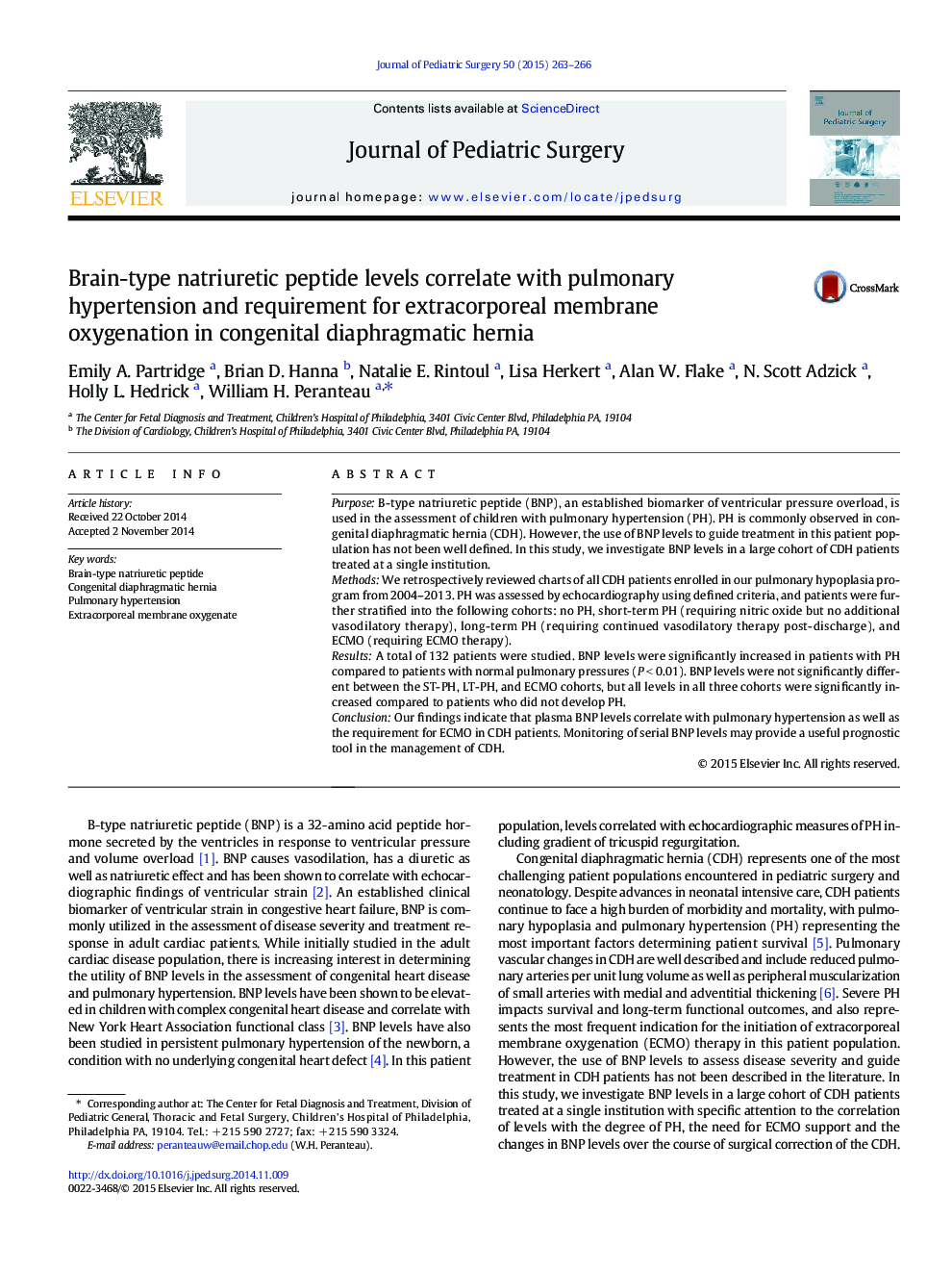| Article ID | Journal | Published Year | Pages | File Type |
|---|---|---|---|---|
| 4155632 | Journal of Pediatric Surgery | 2015 | 4 Pages |
PurposeB-type natriuretic peptide (BNP), an established biomarker of ventricular pressure overload, is used in the assessment of children with pulmonary hypertension (PH). PH is commonly observed in congenital diaphragmatic hernia (CDH). However, the use of BNP levels to guide treatment in this patient population has not been well defined. In this study, we investigate BNP levels in a large cohort of CDH patients treated at a single institution.MethodsWe retrospectively reviewed charts of all CDH patients enrolled in our pulmonary hypoplasia program from 2004–2013. PH was assessed by echocardiography using defined criteria, and patients were further stratified into the following cohorts: no PH, short-term PH (requiring nitric oxide but no additional vasodilatory therapy), long-term PH (requiring continued vasodilatory therapy post-discharge), and ECMO (requiring ECMO therapy).ResultsA total of 132 patients were studied. BNP levels were significantly increased in patients with PH compared to patients with normal pulmonary pressures (P < 0.01). BNP levels were not significantly different between the ST-PH, LT-PH, and ECMO cohorts, but all levels in all three cohorts were significantly increased compared to patients who did not develop PH.ConclusionOur findings indicate that plasma BNP levels correlate with pulmonary hypertension as well as the requirement for ECMO in CDH patients. Monitoring of serial BNP levels may provide a useful prognostic tool in the management of CDH.
